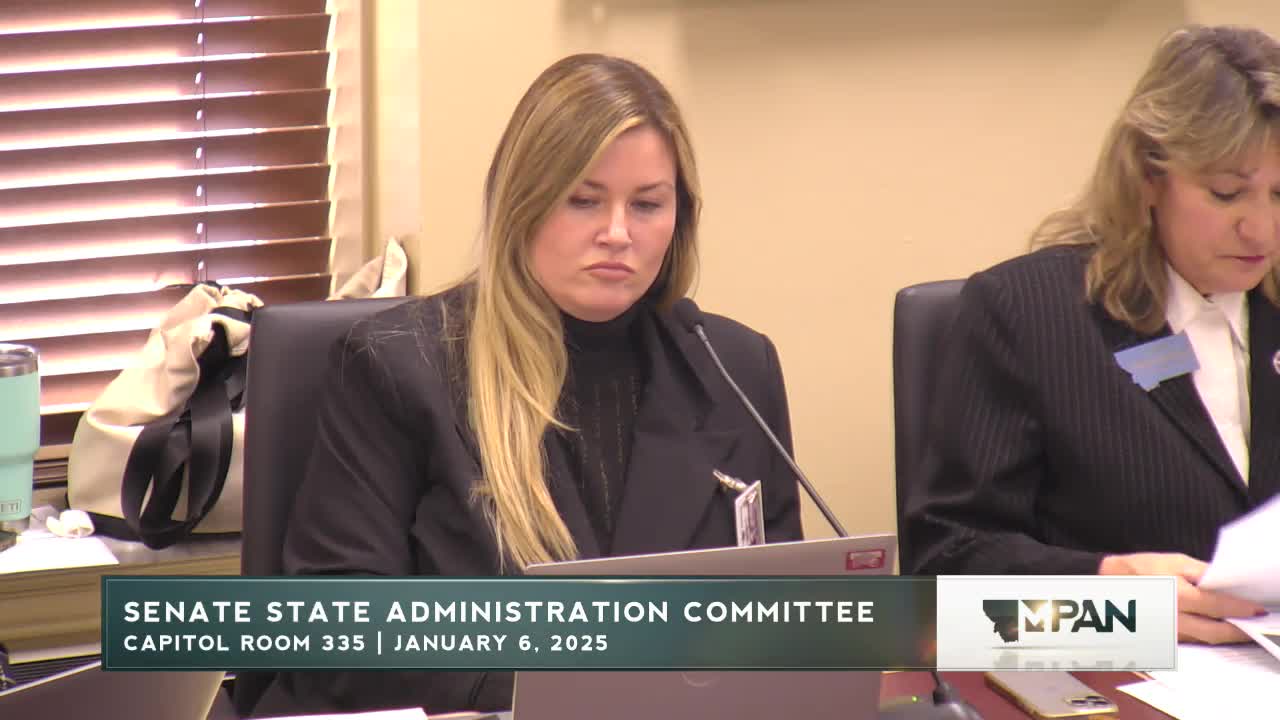SAVA committee reviews interim studies and previews several election and retirement bills ahead of hearings
Get AI-powered insights, summaries, and transcripts
Subscribe
Summary
Committee staff presented interim studies and handouts and previewed at least six bills—many election-related—while announcing a Wednesday briefing with the Secretary of State and other agency presentations; no bills were voted on at the meeting.
The Senate State Administration and Veterans Affairs Committee on Jan. 6, 2025 reviewed interim studies and handouts and heard a preview of legislation the committee will consider in the coming days, including multiple election-related measures and several bills on public-employee retirement systems.
Andrea Harden, the committee's legislative attorney, walked members through a stack of materials prepared during the interim: a fiscal "green sheet" covering the retirement systems, an SJ4 interim study of public-employee retirement systems, an election-security study with findings and recommendations, a report from an SAVA subcommittee on disaster and emergency recovery, and the 2024 legislator's guide to Montana's public employee retirement systems.
Harden told the committee there are "at least 6 bills" waiting to be scheduled. She listed bills and topics the committee may hear, including SB 8 (allowing online voter registration), SB 11 (revising local government ballot-issue laws), SB 25 (revising election laws regarding disclosure requirements for the use of AI in elections), SB 10 (extending on-site inspection timelines during a state of emergency), and three public-employee retirement bills (House Bill 85, Senate Bill 7, and SB 56). Harden said SB 7 was expected to be scheduled for the coming Friday.
Committee members and staff also noted recommendations from a prior Senate select committee on elections that produced four recommendations: create a work group, require two signatures on a handbook, make certain forms mandatory, and install video cameras for some election activities. Harden said two committee bills emerged from the select committee and that Senator Cuff was expected to carry them.
Chair Therese Manzella said agency briefings are being scheduled; she announced a Wednesday meeting that will include the Secretary of State, a presentation on UOCAVA voting by Heather Honey, and a briefing from the Commissioner of Political Practices. Harden noted that temporary-rule redistribution following recent temporary rule changes may cause some scheduling delays as bills are reissued for committee consideration.
The committee was given guidance on amendment procedure and timelines: staff will draft proposed amendments upon request of a legislator, but members are asked to provide as much notice as possible, preferably 24 hours, to allow for legal review and drafting. Harden also reviewed public-hearing logistics: witnesses must sign sheets, can submit written testimony, and audio/video submissions have constraints under the adopted rules.
No formal votes on bills were taken during the meeting; members were encouraged to review the provided materials ahead of scheduled hearings this week.
